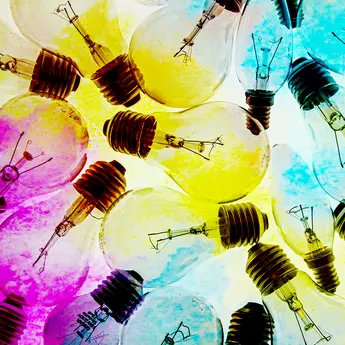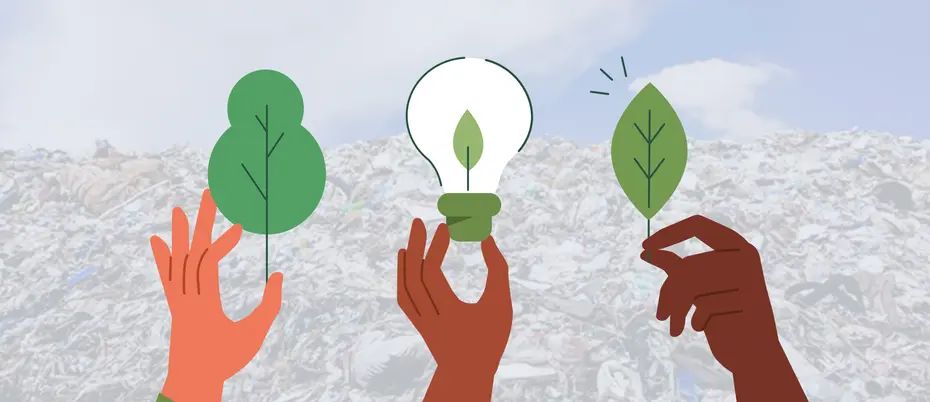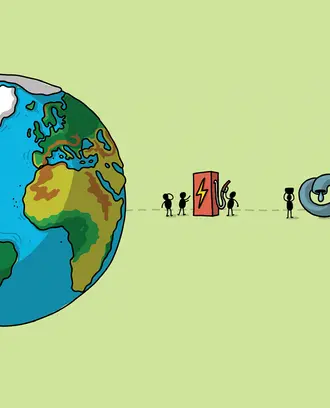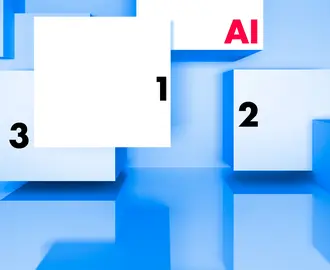Climate Change
Building the case for women waste entrepreneurs
Women are uniquely situated to help tackle the global waste crisis in the circular economy. What’s needed now to advance their role: more data and adequate funding.
To keep our planet as comfortably livable as it is today, scientists generally agree that greenhouse gas emissions need to peak by 2025 and reach net zero by 2050.
To meet such a tall order, tremendous effort has been invested in expanding renewable energy generation and greening transportation — two of the largest sources of emissions worldwide. But other prospects have been overlooked amid this scramble. Improving waste management and creating a circular economy, for instance, could mitigate roughly 20% of emissions while also reducing local pollution and biodiversity loss. This opportunity is only growing: Municipal solid-waste generation is expected to increase 70% by 2050.
Distinctly positioned to solve this problem are women waste entrepreneurs — women engineers, educators, executives, scientists, and more, often in emerging economies, who are focused on the problem of waste.
“What makes women entrepreneurs unique compared to their male counterparts is that they are driven by a motivation to make a difference in the world. They are more likely to innovate to solve for local problems, they design solutions that are inclusive, and they employ more women as they do this,” said Delila Khaled, the principal and founder of global development advisory firm ImpaXus and a Foundry Fellow at the Legatum Center for Development and Entrepreneurship at MIT. “They also tend to be more capital-efficient than men and more holistic in how they assess risk, which yields higher returns for investors in the long run.”
Tapping the potential of women waste entrepreneurs
Khaled convened 45 industry experts for a roundtable last October to discuss the necessity of women waste entrepreneurs in tackling the climate crisis, the barriers they face, and the strategies needed to dismantle these barriers. (The event produced “The Women Waste-Climate Nexus,” a white paper detailing the group’s findings and next steps.)
Investment that currently flows to women waste entrepreneurs tends to center on a narrow range of activities and people, primarily plastics recycling among microenterprises and households. But this underestimates the breadth of women’s involvement in other realms of waste management, from food to fashion to electronics.
Khaled highlighted Joyce Kamande, the co-founder and chief operating officer of Kenya’s Safi Organics, as a standout example of a woman waste entrepreneur. Safi collaborates with more than 3,500 woman-owned smallholder farms to produce organic fertilizer from agricultural waste. Its main product, biochar, sequesters carbon and enriches soil. To date, Safi’s fertilizer has generated a 30% increase in yields and a 50% increase in income for more than 12,000 farmers, all while recycling 60,000 tons of waste and rejuvenating 7,000 acres of farmland, according to the white paper.
To support more women waste entrepreneurs like Kamande, the roundtable had two important recommendations.
First, investors and nongovernmental organizations need to take several steps to unlock climate finance for women waste entrepreneurs. This begins with more organized collection and management of data about women waste entrepreneurs in emerging markets — data that will allow a clearer articulation of the ways in which investing in women waste entrepreneurs both accelerates climate change mitigation and supports stronger financial returns.
A gender lens should also be embedded in climate investments related to zero waste and circular economies. “Even with what little data we have, we know there is a multiplier effect when we invest at the intersection of climate, gender, and waste,” Khaled said. Female representation should be increased among fund managers and the institutional governance of climate funds as well, according to the white paper.
Second, and related, a more concerted effort is needed to build a full entrepreneurial ecosystem in support of women waste entrepreneurs. “We need more finance, but finance on its own isn’t going to work, just as women in more leadership roles, on its own, isn’t going to work,” Khaled said. “We need to break down silos and take a holistic, coordinated approach to building this ecosystem. We need radical collaboration that gets new voices around the table.”

Entrepreneurship Development Program
In person at MIT Sloan
Register Now
This work entails mapping existing market opportunities and launching initiatives like fellowships, prizes, and accelerators to support women waste entrepreneurs in emerging economies. It also requires identifying where female voices are missing in this process and building networks of women waste entrepreneurs across regions and sectors. Finally, Khaled noted the importance of including informal waste workers in these conversations. These are women who collect and manage waste in places where city- or state-backed waste collection infrastructure is insufficient or absent. These workers collect, sort, and recycle waste to sustain a livelihood, often serving as the last line of defense against ocean plastic pollution.
“We can’t talk about waste, about emissions reduction and the circular economy, without talking about the informal sector,” Khaled said. “In emerging economies, the majority of waste management services come from informal workers — as much as 90% in some places.”
Moving forward
Since the publication of her white paper, Khaled has been evangelizing on these efforts at conferences and on panels. She has also seen the paper cited in other work, including the United Nations Environment Programme’s “Global Waste Management Outlook” — “the report on waste management,” as Khaled put it.
“My whole goal with this effort was for it to be relevant for policy action, to get folks who are able to move the needle to pay attention,” she said. She wants to see more donors, investors, and development finance institutions focused on women waste entrepreneurs.
“The UN, USAID, World Bank — these are the folks who influence thought and planning and interventions around the world,” Khaled said. “I just hope to keep pushing forward until women’s diverse efforts to reduce and transform waste is recognized across sectors as an imperative for climate action and a net zero future.”
Read ‘The Women Waste-Climate Nexus’ white paper





